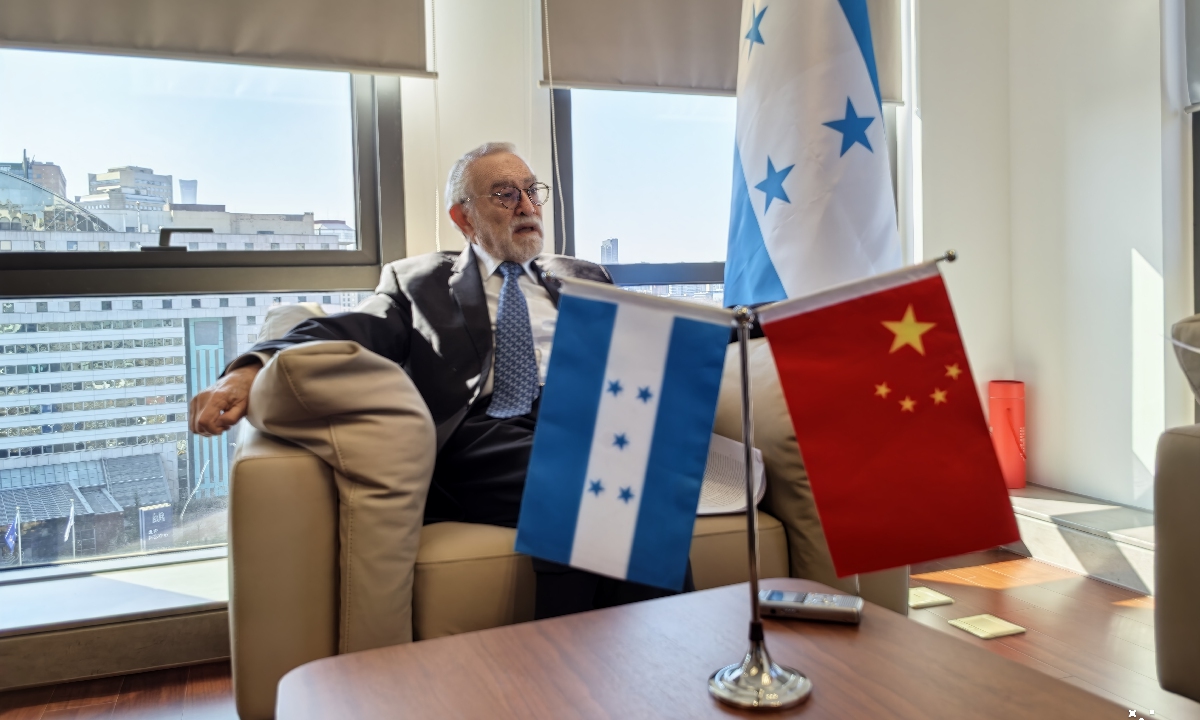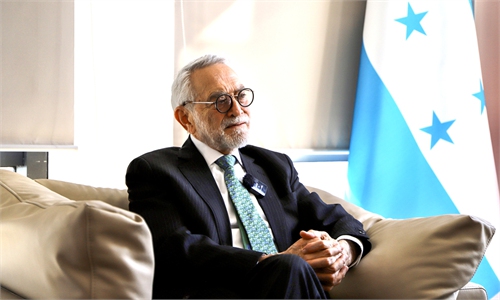ARTS / CULTURE & LEISURE
‘I'm most interested in TCM innovation in Government Work Report:’ Honduran Ambassador to China
Ambassadors to China on ‘two sessions’ (2)

Salvador Moncada, Honduran Ambassador to China Phot: Dong Feng/GT
The 14th National People's Congress (NPC), China's national legislature, opened its third session at the Great Hall of the People in Beijing on Wednesday. In addition to the deputies to NPC and CPPCC members, there is a section for envoys from foreign countries. According to convention, ambassadors from various countries are invited to attend the opening and closing sessions of the NPC every year, which has become a window for the outside world to observe China and understand its development.This is the second time for Salvador Moncada, Honduran Ambassador to China, to listen to the release of the Report on the Work of the Government. In an exclusive interview with the Global Times, the ambassador said it was great to observe the event at the hall, as the "two sessions" are one of the most important political events in China. He also suggested that it would be even better if there could be simultaneous Spanish interpretation of the report.
In the report for this year's work of the government, China targets an economic growth rate of around 5 percent in 2025. Moncada said that he believes the Chinese government must have carefully considered the GDP growth target. Meanwhile, he is confident that China can achieve this goal in the current economic environment.
"It would be a pretense for me to judge a number that has been, I'm sure, carefully calculated and can be accomplished given the circumstances. The only thing I can say is that 5 percent growth will probably be the fastest growth of any economy in the developed world, and will contribute significantly to global growth," said the ambassador.
In the view of the diplomat, if China achieves this development goal, it should be celebrated as it will have a positive impact on Latin America and many other regions.
"The commerce between China and the Latin America region has been growing exponentially from about $18 billion in 2002 to slightly more than 450 billion in 2024 surpassing half a trillion in 2025. This is positive and a strong growth in China will reflect on this," he noted.
Moncada himself is a well-known scientist and pharmacologist in Honduras. During this year's "two sessions," he was closely following the development of China's science and technology.
"Due to my background in science, I am interested in the plans to invest in science and technology, both the modernization of established technologies and the creation and development of new ones. Of course, solar, new energy vehicles, batteries, are already established but also emerging ones like planetary science, artificial intelligence, and nanotechnology," the ambassador said.
Biomedicine is of great interest since this is now an area of priority and innovation is occurring in the areas of generating new molecules guided by artificial intelligence, clinical trials and integration of traditional Chinese medicine (TCM) with Western medicine. "This last one is strategically, I think, very important. It is likely to be a very rich area in the future because of the enormous potential that exists in TCM. Now, due to my origin in a poor country of the Global South, I am very interested in all areas related to rural regeneration and rejuvenation," he added.
Moncada said that if China conducts more extensive technological cooperation overseas, it will benefit many countries in the Global South, including Honduras. "The higher the quality of the technology which is transferred, the better it will be for the countries which receive it. Honduras is just one example, and we have been concentrating on this work and are interested in the possibility of receiving cooperation through the Luban workshop," he said.
The ambassador also expects to increase the number of Honduran students studying in China. "Now we merely have 27 students studying in China, and we hope to expand this number to 100," said the ambassador.

